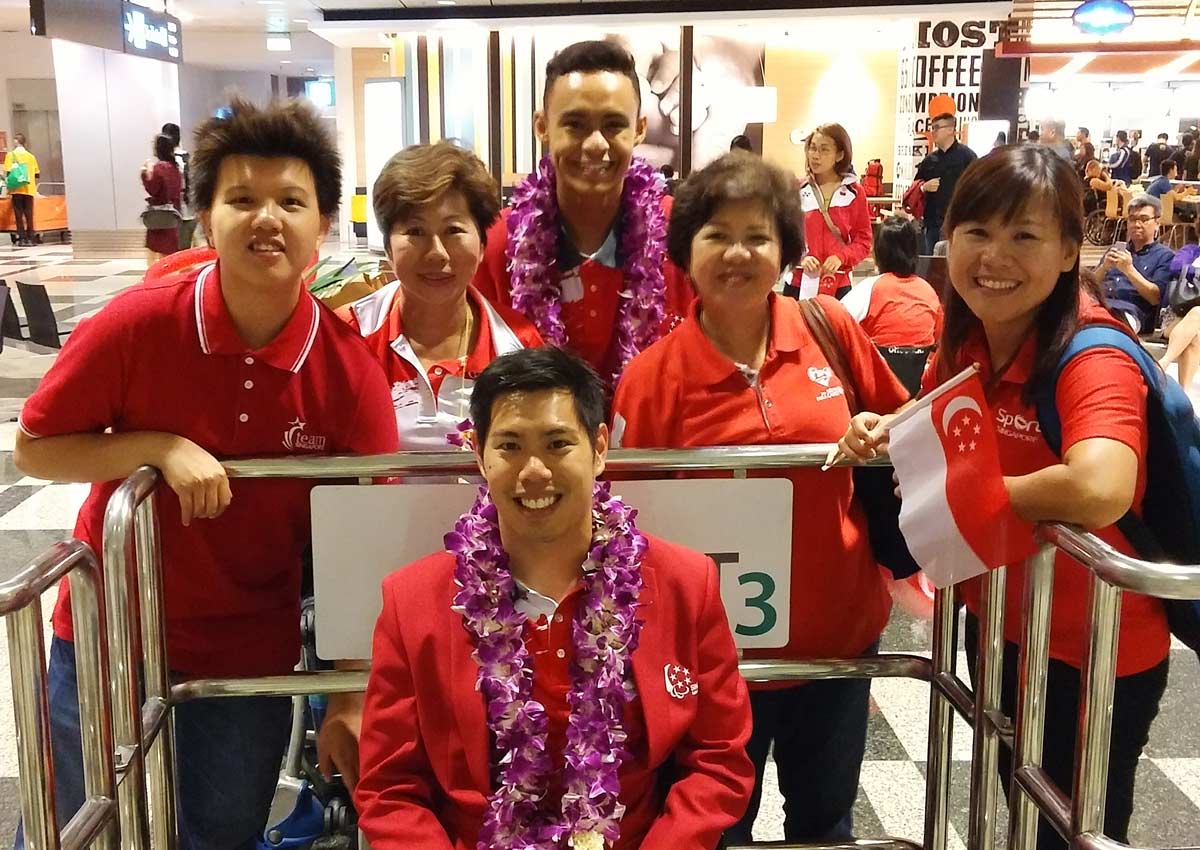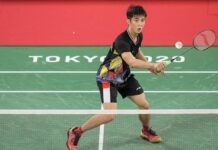When para-equestrian Maximillian Tan was riding in his dressage event, his horse, Don’s Day Dream, spooked and jerked to one side.
The 29-year-old felt a muscle pull on his inner left thigh.
But Tan, who was born with cerebral palsy, had trained for four years for that event, so he pushed through the pain and finished the event, placing 10th out of 11 competitors.
He told The New Paper that all he could think of at that moment was, “I’m here, I’m staying on and I’ll continue riding.”
His grit and determination epitomised the never-say-die spirit that ran through the ranks of the 13 para-athletes who did Singapore proud in the Rio 2016 Paralympic Games.
They took part in six sports – archery, athletics, boccia, equestrian, sailing, and swimming – and won a historic three medals.
Yip Pin Xiu bagged two gold medals in the 100m and 50m backstroke S2, while Theresa Goh won a bronze in the 100m breaststroke SB4.
Former national sprinter Muhamad Hosni, who coached Suhairi Suhani for the men’s long jump T20 event, said: “The effort they put in can be said was twice as much as that of able-bodied athletes. I can see the fire in their eyes, their drive to win.”
National swimmer Amanda Lim, 23, said: “I think their will and determination are stronger than ours.
“They have to go through gruelling training each day and cope with their disabilities at the same time. It’s not something many of us are able to do.
“I’m super proud of them, especially Theresa.”
Tan was one of the nine Team Singapore Paralympians, which included Yip and Goh, who arrived at about 5.25am yesterday, to cheers from well-wishers at Changi Airport Terminal 3.
 Photo Gallery
Photo GalleryFans welcome Team Singapore’s Paralympians
-

<!–
-

<!–
-

<!–
-

<!–
-

<!–
-

<!–
-

<!–
-

<!–
-

<!–
-

<!–
-

<!–
-

<!–
You can still show your support on Saturday at the One Team Singapore Celebratory Parade for Rio 2016 Paralympians, where all 13 athletes will cruise around in luxury cars.
Read also: Equal prize money ‘just nice to have’.
COULD HAVE DONE BETTER
Tan, a full-time athlete, told TNP that he felt he could have done better because he and his team had “prepared for everything”, but an environmental factor had affected the race.
Regardless, he said it was “an honour to represent the country at this level” and that he had enjoyed the experience.
In the build-up to the Paralympics, Tan trained in Germany several times, staying for about three weeks each time.
His family has also made great sacrifices to help him arrive on the world stage.
Mr David Tan, 62, gave up his full-time job as a regional marketing manager in 2008 to help his son prepare for the 2012 Paralympics in London.
Mrs Shem Tan, 59, also quit her job as a secretary in 2014 because she wanted to be near Tan to support and watch over him.
She was particularly worried last October when Tan hurt his hip joint after falling off his horse during a training session.
As for their loss of income, Mr Tan said they are relying on their savings and his daughter, who is covering most of the domestic expenses.
Mr Tan, who is his son’s main carer, said that Tan had been injured about 20 times throughout his nine years competing in equestrian.
But the family does not let injuries and setbacks dampen its determination to help Tan succeed as a full-time para-athlete.
Both father and son said they would review Tan’s performance in Rio and try to correct any errors they spot.
When Tan and his family got back to their 10th-storey executive flat in Sengkang yesterday, he was greeted and congratulated by a couple of their neighbours who were on their way out.
Tan’s sister, Miss Tan Su-Lynn, 32, an educational psychologist with the Ministry of Education, said: “I was the only one at home during the Paralympics and our neighbours would always ask, ‘How’s your family doing?'”
She added that while her brother missed her and home, she missed him and their parents when they were in Rio.
The former national water polo captain said: “I missed them but it was tough to keep in touch because of the time difference.
“But if we happened to be awake at the same time, we would talk to each other.
“My brother would call me in the mornings, just before he went to bed, to update me on what happened and how he felt.
“Growing up, our parents had always encouraged us to be very open with each other, so we’re very close.” Returning paralympians share their stories
The pair were deeply disappointed in having to withdraw from their event after Yap was struck with hypothermia (dangerously low body temperature).
They came in 10th out of 11 for the SKUD18 event after six races.
Yap told The New Paper that they were wearing short sleeves in the event and were caught off-guard by the weather.
The accounts assistant, 26, who has been a wheelchair-user since 2008 because of a spinal inflammation caused by leukaemia, said: “That day was very challenging. It was very sunny but the water was cold and rough.
“We had never faced this kind of strong wind conditions before, so we had to battle very hard.”
Tan, 30, who was born with cerebral palsy, said: “Our goal for this Paralympics was to do the best that we could.
“It’s a pity we had to withdraw.”
Their ex-team manager, sea sports recreation executive Wong Mei Ling, 28, said: “I’m very heartbroken, sad and a bit disappointed. “What they experienced was like an athlete’s worst nightmare.
“The weather there is erratic, so it’s hard to decide what to wear.
“Yap was really angry and disappointed. I think she was angry at herself and that they had to withdraw from the competition.”
TOH SZE NING & NURULASYIQAH TAHA, BOCCIA PLAYERS
Nurulasyiqah, 31, and Toh, 23, who were in the mixed pairs BC3, beat Greece in the team challenge, but lost to them in the bronze medal play-off.
In boccia, players throw red or blue leather balls as close as they can to a white one.
Toh’s mother, Madam Tan Ngeok Moi, 58, said in Mandarin that she was disappointed her daughter did not win the bronze medal.
But she added: “She had already tried her best.”
When TNP spoke to Toh, who started playing boccia as a co-curricular activity at Cerebral Palsy Alliance Singapore when she was 13, she echoed her mother’s words: “I’m a bit disappointed, but we had done our best.”
NORSILAWATI SA’AT, WHEELCHAIR RACER
Despite finishing last in a field of five, wheelchair racer Norsilawati, 39, set a personal best of 1min 49.56sec for the women’s 400m T52 event.
She said the Paralympics was the pinnacle of sports for her and that she had achieved that by taking part in Rio.
Despite facing her fair share of tribulations, such as difficulties in getting sports equipment, Norsilawati was determined to reach her potential.
She hopes to qualify for the next Paralympics in Tokyo in 2020, and aims to become a stronger para-athlete and improve her timings.

This article was first published on September 22, 2016.
Get The New Paper for more stories.









.jpg)





































